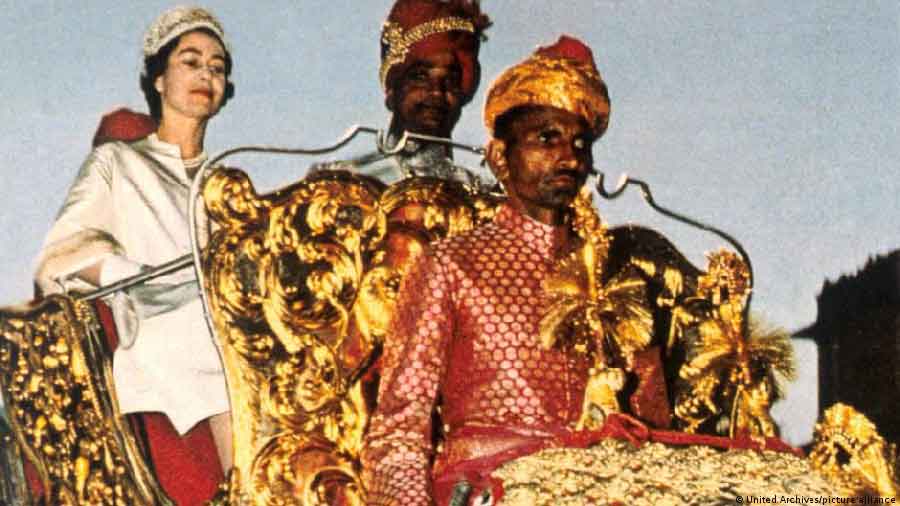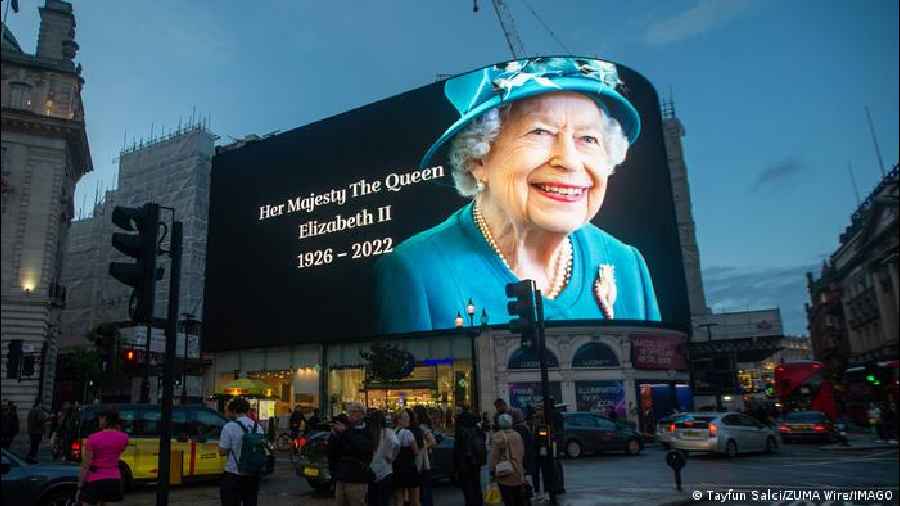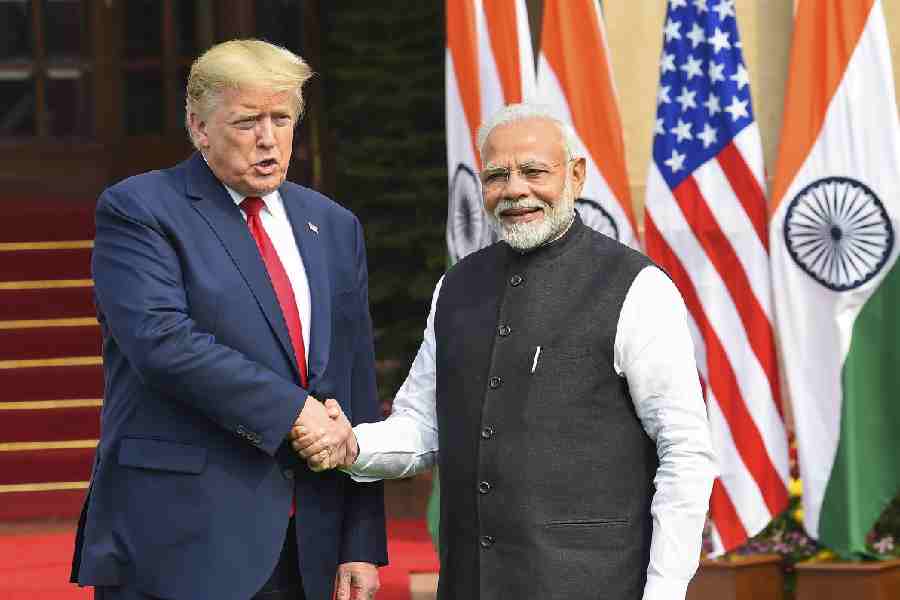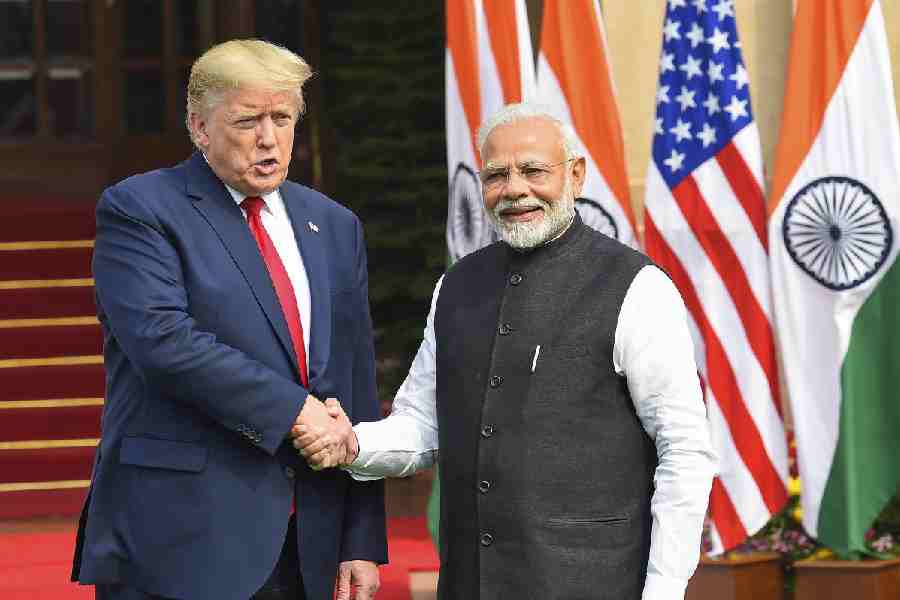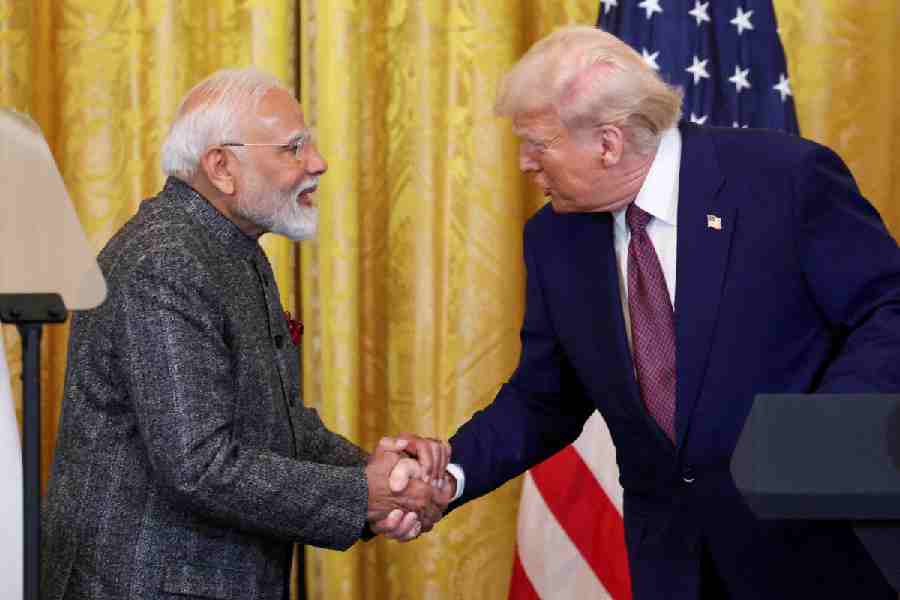In spite of their difficult colonial past, India and Pakistan had a cordial relationship with Queen Elizabeth II. She is seen as a monarch who pursued the policy of "noninterference" during her 70-year-reign as queen.
Elizabeth II was crowned queen of the United Kingdom in 1952, just five years after India and Pakistan gained independence from British colonial rule. The memories of British rule, which was marked by the subjugation of the people of then-undivided India, were fresh in public memory at the time.
Just 25 years old when she became queen, Elizabeth, however, is largely admired and respected by people in the former British colonies.
People in India and Pakistan — as well in other South Asian countries, such as Bangladesh, Nepal and Bhutan — received the news of the queen's death with a great deal of sadness. Thousands of South Asians posted condolences on social media.
"The role of Queen Elizabeth II between 1952 and 1956 was passive and uneventful. She deliberately kept herself away from interfering in Pakistan's internal matters," Mazhar Abbas, a historian at Government College University Faisalabad, told DW.
"She engaged with India and Pakistan through the Commonwealth platform," Abbas added.
Elizabeth also remained neutral in conflicts between India and Pakistan.
"In fact, Indian politicians appreciated her stabilizing role in British politics" after she took over as head of state of the United Kingdom, according to Indian historian Rakesh Batabyal.
Respect for Elizabeth II
"While history has documented the servitude during the colonial era, our relationship with the British monarchy has remained cordial after gaining independence. The queen visited Pakistan many times and maintained good relations with our leaders," Shazia Marri, Pakistan's poverty alleviation minister, told DW.
Asif Nazrul, a professor at Dhaka University in Bangladesh, expressed similar sentiments. "ln spite of the colonial legacy, many people in Bangladesh are sad. We can't live in the past forever. Queen Elizabeth's calm, soothing and accommodating image eventually prevailed in the last few decades," he said, adding that the world has lost an "icon of history."
Subhash Talekar, president of the Mumbai Dabbawalla Association, a food delivery service, told DW that he was saddened by the queen's demise.
"We have a great association with the British royal family. Ever since Price Charles [now King Charles III] visited Mumbai in 2004, the connection has grown," Talekar told DW. "The royal family invited two of our colleagues to the wedding ceremony of Charles and Camilla Parker in 2005. The invitation from the queen had a personal touch, which reflected her humane side," Talekar said.
A difficult relationship nonetheless
Not everyone is ready to gloss over Britain's colonial rule though. Some even criticize Elizabeth's "non-interference" approach, for instance, during the first four years of Elizabeth's rule when she was also the "Queen of Pakistan." The monarchy was abolished on March 23, 1956, when Pakistan became a republic within the Commonwealth with a president as its own head of state.
"She never used the Commonwealth platform to resolve the Kashmir dispute between India and Pakistan," said Abbas, the Pakistani historian.
"She could have played a role in strengthening parliamentary democracy in Pakistan. For instance, she could have interfered in 1953, when Ghulam Muhammad, the then governor-general of Pakistan, dismissed the then prime minister, Khawaja Nazimuddin. The deposed PM made a futile attempt to request the Queen to reverse Muhammad's decision," he added.
But Nonica Datta, a historian at the Jawaharlal Nehru University in Delhi, told DW that Elizabeth had inherited "an enduring and complex legacy of the British empire."
"She represents the end of the British empire and the transition of former colonies into independent states. Rarely do we find such a historical figure who embodied the spirit of colonial and imperial past laced with the post-World War II democratic values of the new world order," Datta said.
Vijayasai Reddy, an Indian lawmaker, tweeted that Queen Elizabeth II "may not have apologized for India's brutal colonization... but her leadership qualities, and morality impacted UK politics."
Anti-colonial sentiment
Shahidul K K Shuvra, a Bangladeshi journalist, told DW that he was befuddled as to why people on the Indian subcontinent are so anguished by Elizabeth's demise.
"South Asians are always more interested in the queen and the royal family rather than how Britain exploited them for 200 years," he said. "The precious Koh-i-Noor (one of the largest cut diamonds in the world) on her crown was taken away from India," he added.
Saimum Parvez, a political analyst in Dhaka, also played down the significance of the queen's death for the people in South Asia.
"The death of the queen does not have any impact on our lives, neither socially nor politically. The Bangladesh government has announced a three-day national mourning, which was expected, but is totally unnecessary," Saimum said.
"Yes, we don't want to live in the colonial past," Saimum said, "but we should not also completely forget what we went through under this monarchy."
Indian writer Rana Safvi, however, said condoling the death of Queen Elizabeth II was not synonymous with condoning or forgetting colonialism. "We, in India, are still suffering because of the colonial policies," Safvi said. "We don't have to endorse the monarchy."
From Deutsche Welle Newsfeed

